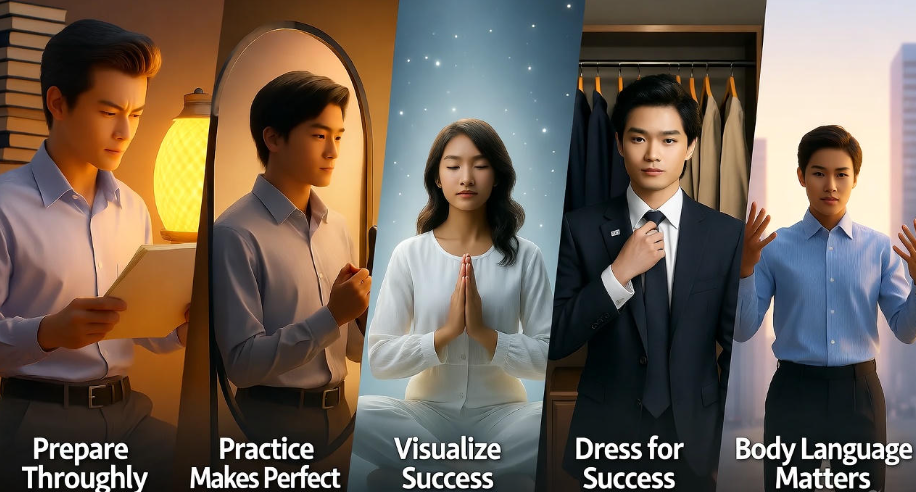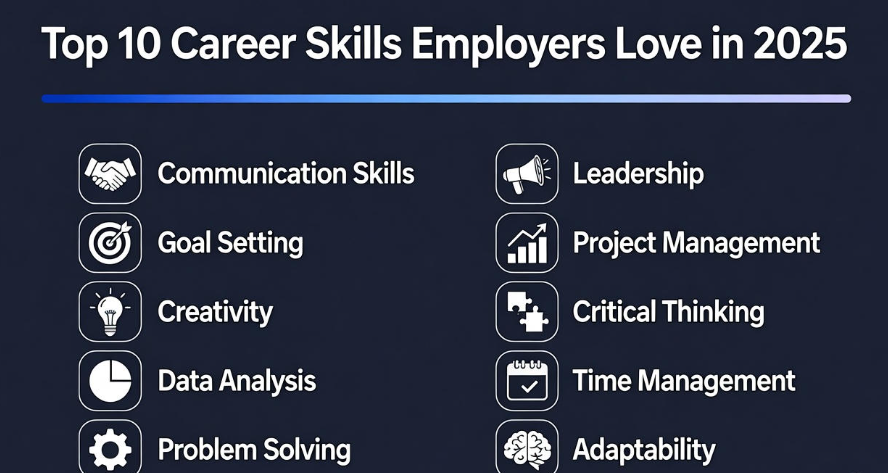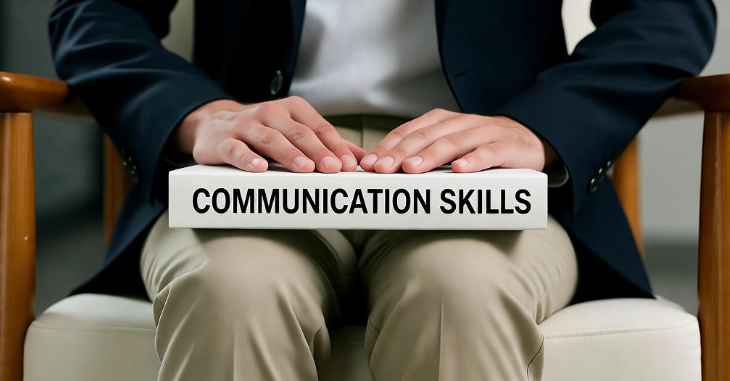Job interviews can be nerve-wracking. 😰 Even if you are skilled and experienced, stepping into that room or logging into that Zoom call can make your heart race. Confidence is key—it’s not just about knowing your stuff, but also showing it. The good news? Confidence can be built. And here’s how you can do it in five practical ways.
1. Prepare Thoroughly, But Smartly
Preparation is your best friend. It’s not just about memorizing answers but understanding the company, the role, and yourself. Here’s what you can do:
-
Research the company: Know its mission, values, and recent achievements. When you speak knowledgeably, it shows confidence.
-
Know the job description inside out: Match your skills with what they want. Be ready with examples.
-
Practice common interview questions: But don’t memorize word-for-word. Instead, understand what they are asking and prepare flexible answers.
Pro Tip: Use the “STAR” method (Situation, Task, Action, Result) for behavioral questions. It’s easier to structure answers and look confident.
| Preparation Task | How to Do It | Why It Helps |
|---|---|---|
| Research the company | Visit website, social media, news | Shows knowledge & interest |
| Understand job description | List required skills & match with yours | Demonstrates fit |
| Practice common questions | Mock interviews with friends or in mirror | Reduces anxiety |
2. Focus on Body Language
Confidence is not only spoken—it’s seen. Your body can make you look confident even if you feel nervous inside.
-
Posture matters: Sit up straight, shoulders back. It makes a subtle but strong impression.
-
Eye contact: Look at the interviewer, not the floor. Friendly eye contact shows engagement.
-
Smile genuinely: A smile can instantly make you feel more relaxed and approachable.
-
Avoid fidgeting: Keep hands calm; small gestures are okay but avoid nervous habits.
Quick Hack: Practice in front of a mirror. Notice your gestures, posture, and expressions. The more aware you are, the more natural it feels during the interview.
3. Master Your Voice and Speech
How you say things can boost confidence just as much as what you say.
-
Speak clearly and slowly: Don’t rush. Pauses are okay—they show thoughtfulness.
-
Tone of voice: Avoid monotone. Slight enthusiasm can make your answers compelling.
-
Practice tricky words or phrases: Names, technical terms, or industry jargon—get them right.
Tip: Record yourself answering a few questions. Listening to your tone and pace helps you adjust.

4. Use Visualization and Positive Thinking
Believe in your success even before it happens. The mind is powerful, and visualizing can boost real-world confidence.
-
Visualize success: Imagine walking in confidently, answering questions smoothly, and leaving with a smile.
-
Positive affirmations: Tell yourself, “I am capable,” or “I can do this.” Repeat before the interview.
-
Replace negative thoughts: If you catch yourself thinking, “I’m not good enough,” pause and reframe: “I have prepared, and I can handle this.”
Fun Tip: Use a “power pose” for 2 minutes before the interview. Stand like a superhero—it’s weirdly effective! 💪
5. Practice, Reflect, and Improve
Confidence grows with practice. Think of interviews as a skill you can sharpen over time.
-
Mock interviews: Friends, mentors, or even online platforms can simulate the real scenario.
-
Reflect on past experiences: Write down what went well and what didn’t. Learn from mistakes.
-
Celebrate small wins: Finished a tough interview? Pat yourself on the back! Recognition builds inner confidence.
Table Example:
| Practice Step | How to Implement | Benefit |
|---|---|---|
| Mock interviews | Record with friend or coach | Builds experience & comfort |
| Reflect & analyze | Note strengths & areas to improve | Continuous improvement |
| Celebrate achievements | Reward yourself after each effort | Reinforces positive behavior |
Bonus Tip: Dress for success. When you feel good in your outfit, it boosts your inner confidence too. 👔✨
FAQs About Building Interview Confidence
Q1: How long does it take to feel confident for interviews?
A: Confidence is built over time. Even 1–2 weeks of focused preparation can make a noticeable difference. Longer-term practice makes it second nature.
Q2: What if I feel extremely nervous?
A: That’s normal. Deep breathing exercises, visualization, and positive self-talk can calm nerves. Remember, most interviewers expect some anxiety—it’s human!
Q3: Can body language really make a difference?
A: Absolutely. Studies show people perceive confident body language as competence. Even if you feel nervous, good posture and eye contact help convey confidence.
Q4: Should I memorize answers?
A: Avoid word-for-word memorization—it can sound robotic. Understand key points and practice flexible phrasing.
Q5: How do I recover from a mistake during an interview?
A: Stay calm. Acknowledge it lightly if needed, then continue confidently. Interviewers notice recovery as much as mistakes.
Building confidence for interviews isn’t about faking it—it’s about preparation, mindset, and presence. Start small, practice consistently, and soon walking into any interview room will feel natural. 🌟





